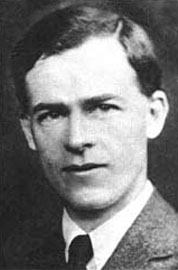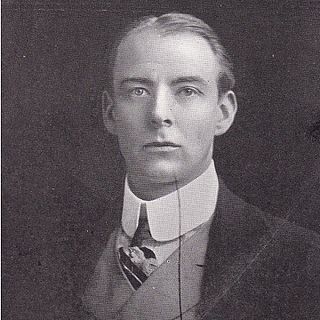Related Research Articles

Emmeline Pankhurst was a British political activist who organised the UK suffragette movement and helped women win the right to vote. In 1999, Time named her as one of the 100 Most Important People of the 20th Century, stating that "she shaped an idea of objects for our time" and "shook society into a new pattern from which there could be no going back". She was widely criticised for her militant tactics, and historians disagree about their effectiveness, but her work is recognised as a crucial element in achieving women's suffrage in the United Kingdom.

The Independent Labour Party (ILP) was a British political party of the left, established in 1893 at a conference in Bradford, after local and national dissatisfaction with the Liberals' apparent reluctance to endorse working-class candidates, representing the interests of the majority. A sitting independent MP and prominent union organiser, Keir Hardie, became its first chairman.

Margaret Grace Bondfield was a British Labour Party politician, trade unionist and women's rights activist. She became the first female cabinet minister, and the first woman to be a privy counsellor in the UK, when she was appointed Minister of Labour in the Labour government of 1929–31. She had earlier become the first woman to chair the General Council of the Trades Union Congress (TUC).

George Douglas Howard Cole was an English political theorist, economist, and historian. As a believer in common ownership of the means of production, he theorised guild socialism. He belonged to the Fabian Society and was an advocate for the co-operative movement.

The United Procession of Women, or Mud March as it became known, was a peaceful demonstration in London on 9 February 1907 organised by the National Union of Women's Suffrage Societies (NUWSS) in which more than 3,000 women marched from Hyde Park Corner to the Strand in support of women's suffrage. Women from all classes participated in what was the largest public demonstration supporting women's suffrage seen until then. It acquired the name "Mud March" from the day's weather since incessant heavy rain left the marchers drenched and mud-spattered.

A movement to fight for women's right to vote in the United Kingdom finally succeeded through acts of Parliament in 1918 and 1928. It became a national movement in the Victorian era. Women were not explicitly banned from voting in Great Britain until the Reform Act 1832 and the Municipal Corporations Act 1835. In 1872 the fight for women's suffrage became a national movement with the formation of the National Society for Women's Suffrage and later the more influential National Union of Women's Suffrage Societies (NUWSS). As well as in England, women's suffrage movements in Wales, Scotland and other parts of the United Kingdom gained momentum. The movements shifted sentiments in favour of woman suffrage by 1906. It was at this point that the militant campaign began with the formation of the Women's Social and Political Union (WSPU).

A suffragette was a member of an activist women's organisation in the early 20th century who, under the banner "Votes for Women", fought for the right to vote in public elections in the United Kingdom. The term refers in particular to members of the British Women's Social and Political Union (WSPU), a women-only movement founded in 1903 by Emmeline Pankhurst, which engaged in direct action and civil disobedience. In 1906, a reporter writing in the Daily Mail coined the term suffragette for the WSPU, derived from suffragist, in order to belittle the women advocating women's suffrage. The militants embraced the new name, even adopting it for use as the title of the newspaper published by the WSPU.
The Conservative and Unionist Women's Franchise Association (CUWFA) was a British women's suffrage organisation open to members of the Conservative and Unionist Party. Formed in 1908 by members of the National Union of Women's Suffrage Societies, CUWFA was the third-largest suffrage organisation in Britain before the First World War.

The Open Christmas Letter was a public message for peace addressed "To the Women of Germany and Austria", signed by a group of 101 British suffragists at the end of 1914 as the first Christmas of the First World War approached. The Open Christmas Letter was written in acknowledgment of the mounting horror of modern war and as a direct response to letters written to American feminist Carrie Chapman Catt, the president of the International Woman Suffrage Alliance (IWSA), by a small group of German women's rights activists. Published in January 1915 in Jus Suffragii, the journal of the IWSA, the Open Christmas Letter was answered two months later by a group of 155 prominent German and Austrian women who were pacifists. The exchange of letters between women of nations at war helped promote the aims of peace, and helped prevent the fracturing of the unity which lay in the common goal they shared, suffrage for women.
The Edinburgh National Society for Women's Suffrage was a leading group for women's rights in Scotland. It was one of the first three suffrage societies to be formed in Britain.

Henry Devenish Harben was a British barrister and Liberal Party politician who later joined the Labour Party. He was a notable supporter of women's suffrage.
The United Suffragists was a women's suffrage movement in the United Kingdom.

The Liverpool Women's Suffrage Society was set up in 1894 by Edith Bright, Lydia Allen Booth and Nessie Stewart-Brown to promote the enfranchisement of women. The society held its first meeting in a Liverpool temperance hall, with Millicent Fawcett, head of the National Union of Women's Suffrage Societies (NUWSS), as its guest speaker. The society set up headquarters in Lord Street. The group became affiliated with the NUWSS in 1898, it held meetings in cafés which included talks, poetry and dance recitals. Members were recruited from prominent members of society and they distanced themselves from working class suffrage societies such as Women's Social and Political Union (WSPU).
Alice Caroline Franklin OBE was a British feminist, secretary of the Jewish League for Woman Suffrage and The Society for the Oversea Settlement of British Women, and a key figure in the running of the Townswomen's Guild. Together with Gertrude Horton, she shaped the society from its suffragette roots into an organisation that was apolitical and inclusive, but also provided considerable space for feminist and lesbian women.

Sarah Reddish was a British trade unionist and suffragette, who was active in the co-operative movement. A supporter of women running for local elections as a springboard to gaining national voting rights, she ran for office on the Bolton School Board and was successful in her second attempt in 1899. She also ran for office as a Poor Law Guardian, and was successful, but was defeated in her attempt to become a member of the borough council. As a textile worker, Reddish knew first-hand the conditions and wages women experienced and joined unions, working as a paid organiser to help women improve their situations. She was both a socialist and a radical feminist, urging women's equality in the public sphere.
Jessie Cunningham Methven was a Scottish campaigner for women's suffrage. She was honorary secretary of the Edinburgh National Society for Women's Suffrage from the mid 1890s until 1906. She subsequently joined the more militant Women's Social and Political Union and described herself as an "independent socialist".
Sidney Dillon Shallard was a British socialist activist.

Louise Mary Eates was a British suffragette, chair of Kensington Women's Social and Political Union and a women's education activist.
Agnes Helen Harben was a British suffragist leader who also supported the militant suffragette hunger strikers, and was a founder of the United Suffragists.
Harriette Beanland was a British textile worker and Suffragette and secretary to the Women's Labour League branch in Nelson in Lancashire.
References
- ↑ "Biographies of new candidates". Fabian News. April 1914.
- ↑ Crawford, Elizabeth (2003). The Women's Suffrage Movement: A Reference Guide 1866-1928. Routledge. p. 694. ISBN 1135434026.
- ↑ Eustace, Claire; John, Angela V. (2013). The Men's Share?. Routledge. p. 28. ISBN 113618144X.
- 1 2 Whitaker's Almanack (1950), p.583
- ↑ Beers, Laura (2000). Your Britain: Media and the Making of the Labour Party. Harvard University Press. pp. 145–146. ISBN 0674050029.
- ↑ Annual Report of the National Union of Conservative and Unionist Associations (1927), p.16